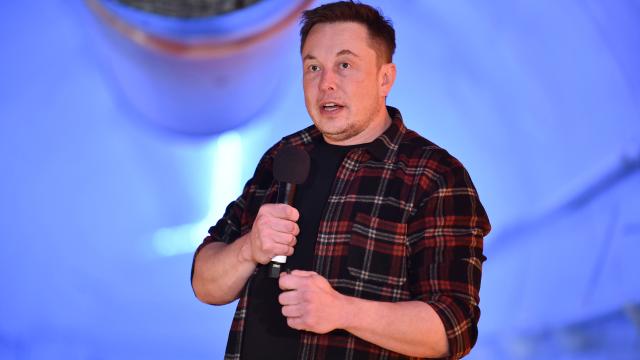On Monday, Tesla CEO Elon Musk filed his response to an SEC request to that a federal court hold him in contempt for violating a settlement agreement.
In the filing, Musk argues that restrictions on his tweeting amount to an “unconstitutional power grab” by the SEC and that he didn’t even violate the agreement anyway.
The battle in federal court is the latest episode in a saga that kicked off last August when Musk tweeted that he was “considering taking Tesla private at $420” and that he’d secured funding. He had not secured funding, Tesla didn’t go private, but its stock price went nuts. The SEC was pissed and tried to get Musk barred from running a public company.
Musk was cavalier about it until he wasn’t and eventually settled with the regulator, agreeing to pay a $US20 ($28) million fine, resign as chairman of Tesla’s board, and run any tweets that are material to Tesla’s business by lawyers before posting.
In February, Musk proceeded to tweet that “Tesla made 0 cars in 2011, but will make around 500k in 2019.” Realising the tweet wasn’t accurate, he followed up four hours later, clarifying that he meant Tesla’s factory would hit an annualised production rate of 500,000 cars in 2019 but only deliver around 400,000 models.
Within days, the SEC claimed he should be held in contempt because he “did not seek or receive preapproval prior to publishing this tweet, which was inaccurate and disseminated to over 24 million people.”
In their response on Monday, Musk’s lawyers argued that this case is about “a celebratory string of tweets, expressing excitement about Tesla’s success since 2011 and pride for what Tesla anticipated achieving in 2019.”
They said that Musk had simply “used his discretion” to determine the “tweet was not material” to the settlement agreement and that the production numbers were already public knowledge as they were included in an earnings call and an SEC filing. As proof that he’s doing his best to comply with the agreement, Musk wrote that he has cut his “average monthly Tesla related tweets nearly in half.”
In an interview with 60 Minutes last December, Musk was asked how Tesla could determine which of his tweets had the potential to move the company’s stock price.
“Well, I guess we might make some mistakes,” he replied. That sort of uncertainty has led Musk’s attorneys to argue that the settlement amounts to a violation of their client’s First Amendment rights. They wrote that the SEC’s interpretation of the settlement prevents Musk from speaking about the Tesla business, in general. “Musk never consented to and would not consent to such a sweeping gag order.”
The heart of the conflict is that the SEC isn’t defining what Musk can’t tweet, but it is saying that if he tweets something that could move Tesla’s stock without proper communication with investors first, he’ll face consequences if it wasn’t approved by Tesla’s lawyers.
In this case, the tweets came in after-hours trading and didn’t have a noticeable effect on Tesla’s stock, but investors still aren’t happy and are suing him for tweeting “repeated misstatements.”
Ever since he reluctantly agreed to settle with the SEC, Musk has shown contempt for the agency. He told 60 Minutes that he has no respect for the regulator and later claimed that his 420 tweet was worth getting fined $28 million.
In its motion for contempt, the SEC cites the 60 Minutes interview as an example of Musk not being diligent in his effort to comply with the settlement. In their response on Monday, Musk’s lawyers claimed that the contempt charge “smacks of retaliation and censorship.”
What sort of consequences would Musk face for his stubborn insistence on his right to tweet whatever the hell he wants? According to the Washington Post, the SEC could impose more fines or greater restrictions on his social media activity.
Peter Haveles, a trial lawyer with the law firm Pepper Hamilton, told Wired that if the SEC’s motion for contempt is granted, “there is a good likelihood that the District Court will fine Mr. Musk and that it will put him on a short leash, with a strong warning that further violations could result in Mr. Musk being banned for some period of time as an officer or director of a public company.”
While it’s infuriating to watch a man who is in charge of two major companies risk everything because he’s addicted to posting, it’s also kind of encouraging in a weird way. Most of us don’t have billions of dollars and the freedom to do virtually anything we want.
Elon Musk does, and what he wants to do is tweet. Anyone can tweet. So the next time you fire off a post that makes you proud, think to yourself: “What I’m currently experiencing is possibly the most joyful feeling that Elon Musk can imagine.” Money can’t buy happiness, but that tiny dopamine rush from a retweet is everything.
[SDNY via Washington Post]
